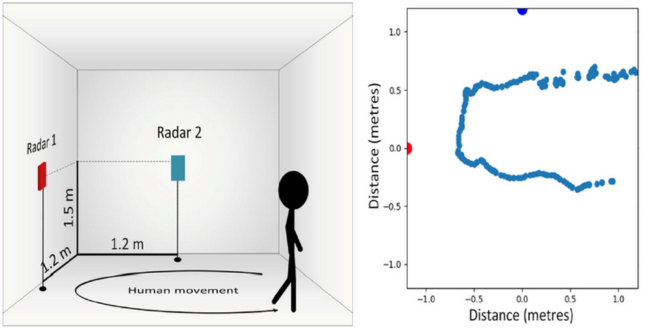Non‐Intrusive Human Activity Radar System
A radar system for human detection that overcomes intrusion and privacy concerns associated with cameras.
Uses
- Geriatric population monitoring, including heart rate detection
- Human activity monitoring in low light or smoky environments
Benefits
- Less intrusive than current camera systems
- Low cost, high accuracy
- Operates in real-time
- Operates in any light condition, including at night, and in vapour, fog, steam, and smoke

Human activity recognition (HAR) is used for monitoring people in environments such as care homes, hospitals, workplaces and lifts. Many HAR systems rely on cameras, sensors, wearable devices or a mixture thereof, to analyse human behaviour. The use of cameras raises privacy concerns and requires good lighting conditions.
Researchers from the University of Bristol have developed a HAR system using multiple millimetre-wave (mmWave) radars. These mmWave sensors are less intrusive and can detect speed, postures, movement direction and proximity in a far broader range of light conditions than the current state-of-the-art camera systems.
Other available technologies
See below for more technologies developed at the University of Bristol
- Human Podocyte Cell LineA conditionally immortalised human podocyte cell line. It is a unique and representative tool for the study of human glomerular disease.
- Real-time dose verification in radiotherapyA team from the Universities of Bristol and Swansea together with University Hospitals Bristol NHS Foundation Trust has developed a novel radiation detector device for determining the dose from Intensity Modulated Radiotherapy (IMRT) in real-time.
